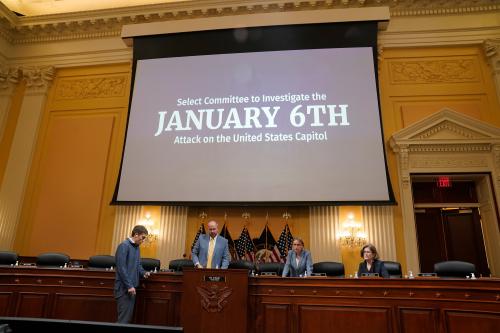

1:00 pm EDT - 2:00 pm EDT
Past Event
The consequences of the novel coronavirus pandemic stretch across the entirety of government services. Major police agencies have reported absentee rates as high as 20% due to officers who are either themselves afflicted with the virus or in need of self-quarantine. Reported crimes are generally down in America’s cities as a result of the many shutdown orders across the nation, while domestic violence and certain specific crimes have nevertheless seen marked increases. Subsequent financial issues will likely emerge as well, as states and cities struggle with the budgetary implications of the extraordinary contraction of tax revenues brought on by the crisis. Likewise, criminal syndicates and extremist groups have been exploiting the situation for their own purposes and spreading disinformation in ways that could become quite dangerous. Meanwhile, the mental health and longer-term resilience and endurance of law enforcement officers is a concern, as they work hard to help their communities while trying to keep their colleagues, families, and themselves healthy.
On May 11, the Brookings Institution, in collaboration with experts from the Miller Center at Rutgers University, the U.S. Department of Homeland Security, and the Security Program at the University of Ottawa, hosted a virtual forum concerning policing in the United States in the era of COVID-19. As New Jersey and New York City law enforcement remain in the epicenter of this pandemic, the most senior officers of these jurisdictions shared their experiences and lessons learned and discuss the road ahead. They were joined by the U.S. Department of Homeland Security’s chief medical officer, as well as some of the nation’s current and recently retired police leaders.
Moderator

Panelist

Panelist


Elaine Kamarck
February 29, 2024

Bruce Riedel
January 23, 2023

Glenn Fine
August 9, 2022